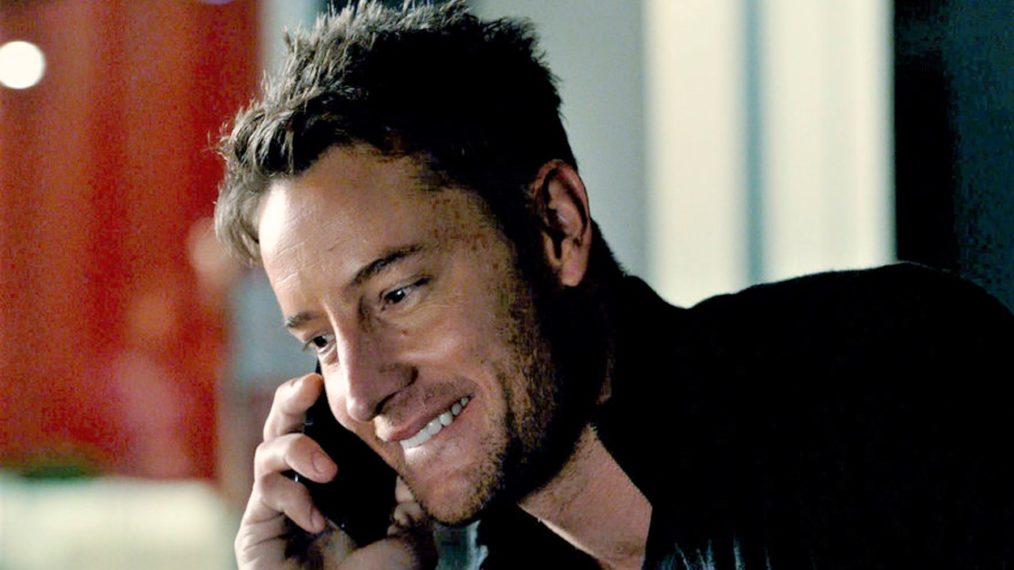#‘Eileen’ Review: Anne Hathaway and Thomasin McKenzie Burn Up the Screen in Supremely Stylish Psychological Thriller

Table of Contents
‘Eileen’ Review: Anne Hathaway and Thomasin McKenzie Burn Up the Screen in Supremely Stylish Psychological Thriller
Anyone who saw William Oldroyd’s 2016 first feature, the blisteringly indecorous Victorian tragedy Lady Macbeth, will know not to expect anything ordinary from his long-awaited follow-up. But even with those expectations in mind, what a strange and spellbinding psychological thriller he has woven out of Ottessa Moshfegh’s novel, Eileen, which shares with the British director’s debut a contagious fascination with complicated women subject to dark impulses. Rippling with sly humor and a bold command of the tropes of classic Hitchcockian suspense, this is a twisty and beguiling original, led by contrasting but expertly synced performances from Thomasin McKenzie and Anne Hathaway.
While the new film, set in 1964 in the snowbound blue-collar Boston suburbs, is an entirely different animal to Lady Macbeth, it shares some thematic elements, notably its unblinking study of a title character who transforms once she’s uncaged, her desires liberating an unsuspected ruthlessness. And like Oldroyd’s previous film, which thrust Florence Pugh into the spotlight, this one stands to kick McKenzie’s career up a notch. Her work here takes the promise she showed in movies like Leave No Trace and Last Night in Soho and runs with it in bracing new directions.
Eileen
The Bottom Line
A morbid beauty.
“Everyone’s pretty angry here. It’s Massachusetts,” Eileen Dunlop tells her glamorous new colleague at the boys’ prison where she works in the office, Hathaway’s Rebecca St. John. But Eileen appears to be the only person not in touch with her anger as she stares longingly at couples making out in cars parked by the wintry seashore or has sex fantasies about a lanky prison guard (Owen Teague) before going home each night to the verbal abuse of her widowed ex-cop father (Shea Whigham). A mean drunk, he tells her there are two kinds of people in the world — the dynamic characters you can’t keep your eyes off in movies and the other nobodies that just fill the spaces around them, lumping Eileen with the latter.
While Eileen’s mind flashes with thoughts of blowing her brains out or those of her father, on the surface she’s a mousy figure in shapeless cardigans and dowdy skirts, numb to the curt treatment of her older co-workers at the prison, particularly a head secretary played with hilarious sourness by Siobhan Fallon Hogan. But when Rebecca is ushered in as the new prison psychologist, a blonde vision poured into snug skirt suits, carrying herself with unflappable poise on her power heels, something sparks in Eileen. And perhaps Rebecca, a dangerous character inspired by the Hitchcock film, in turn sees something in Eileen that’s malleable and enticing.
Rebecca slips instantly into easy, breezy girlfriend mode with the younger woman, making her feel seen and special possibly for the very first time, and Eileen responds like a sponge soaking up water. Soon she’s emulating Rebecca, trailing coils of cigarette smoke and raiding her mother’s closet. It helps that the late Mrs. Dunlop was a stylish clothes horse, an improbable plot convenience that’s one of many ways in which Eileen luxuriates in its movie-ish artificiality. “You’re different these days,” her dad tells her. “You’re almost interesting.”
Eileen and Rebecca share a fascination with the case of one of the juvenile offenders serving time, Leo Polk (Sam Nivola), who murdered his police officer father by stabbing him multiple times in his bed. Rebecca asks the young man’s mother (Marin Ireland) to come in during visiting hours, but Mrs. Polk’s encounter with her son ends with her storming out in a distraught rage, calling him “a filthy, nasty boy.”
Perhaps to let off steam following that incident, Rebecca invites Eileen for cocktails after work at the one bar in town, a dingy hangout in which the psychologist comports herself like a fixture at the swankiest Manhattan watering hole.
Exuding worldly confidence from every perfect pore, Hathaway is at her most commanding in this role. It’s impossible not to share Eileen’s intoxication with Rebecca, who’s as quick with her wit as she is with her fists when a guy comes on too strong. As she dances by the jukebox with Eileen to The Exciters’ “Tell Him” then melts into a sensual slow dance to Art Neville’s “All These Things,” the film lures us into believing we’re in Carol territory.
Oldroyd and his screenwriters, Luke Goebel and novelist Moshfegh (fresh off her fine work on Causeway), feed that vein of heady romance knowingly. DP Ari Wegner’s camera remains fixed on Eileen’s nervously ecstatic face in a bathroom mirror as she mentally readies herself for what she anticipates will be a Christmas Eve seduction in Rebecca’s home. “People are so ashamed of their desires,” Rebecca tells Eileen, with a conspiratorial intimacy that seems a taste of things to come.
But the film springs a major surprise midway, as the psychologist confesses to a rash move, revealing the rattled woman beneath the smooth veneer. She pulls her young friend into a shockingly compromising situation that goes further awry once the initially reluctant Eileen gets on board and agrees to help. The dormant noir tones — slyly suggested since the opening shot of a car shrouded in fog and fueled by the agitated crescendos of Richard Reed Parry’s wonderfully arch score — blossom to full flower.
The intense final act sees both principal characters behave in ways that appear to have been coiled inside them all along, giving the actors deliciously juicy stuff to work with. Hathaway shows Rebecca’s momentary loss of control before reverting to cool-headed pragmatism while McKenzie pushes Eileen to become almost unhinged in her amoral purposefulness, willing to do anything to get what she wants. Equally astonishing in this climactic stretch is the invaluable Ireland, playing a coarse, bitter woman who confesses the depths of corrosive self-deception that can be unleashed by trauma in a riveting monologue.
Wegner shoots in the tight 4:3 aspect ratio with an atmospheric feel for the gelid Massachusetts winter as a grim chokehold, which Eileen discovers through Rebecca that she yearns to escape. Craig Lathrop’s period production design similarly nails the bleak environment while Olga Mill’s costumes for Rebecca, and later, Eileen seem to suggest the beckoning world beyond. This is a film both malevolent and playful, morbidly funny and disturbing. It more than confirms the radical talent Oldroyd showed in Lady Macbeth and stokes an appetite for more screen adaptations of work by celebrated fiction writer Moshfegh.
If you liked the article, do not forget to share it with your friends. Follow us on Google News too, click on the star and choose us from your favorites.
For forums sites go to Forum.BuradaBiliyorum.Com
If you want to read more Like this articles, you can visit our Social Media category.




